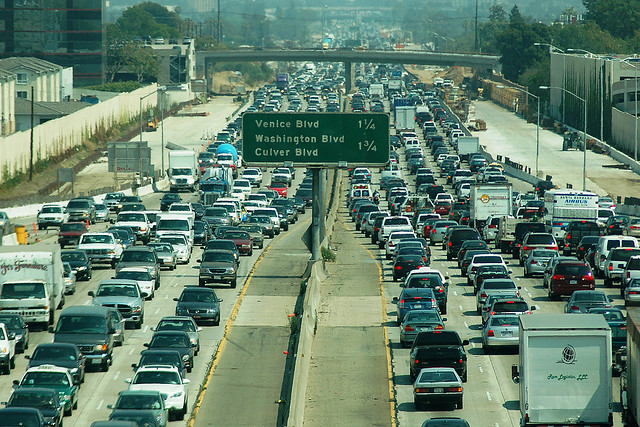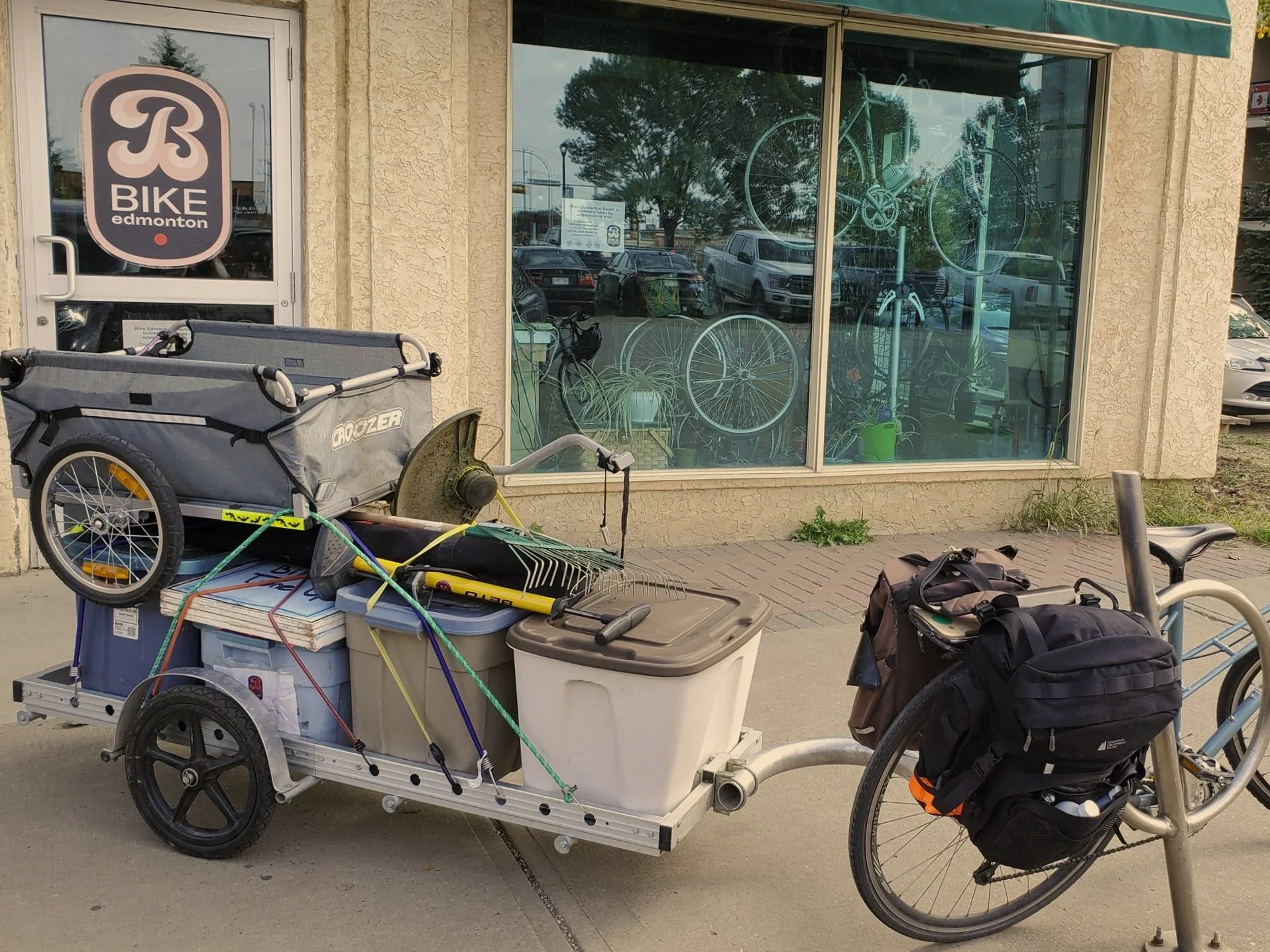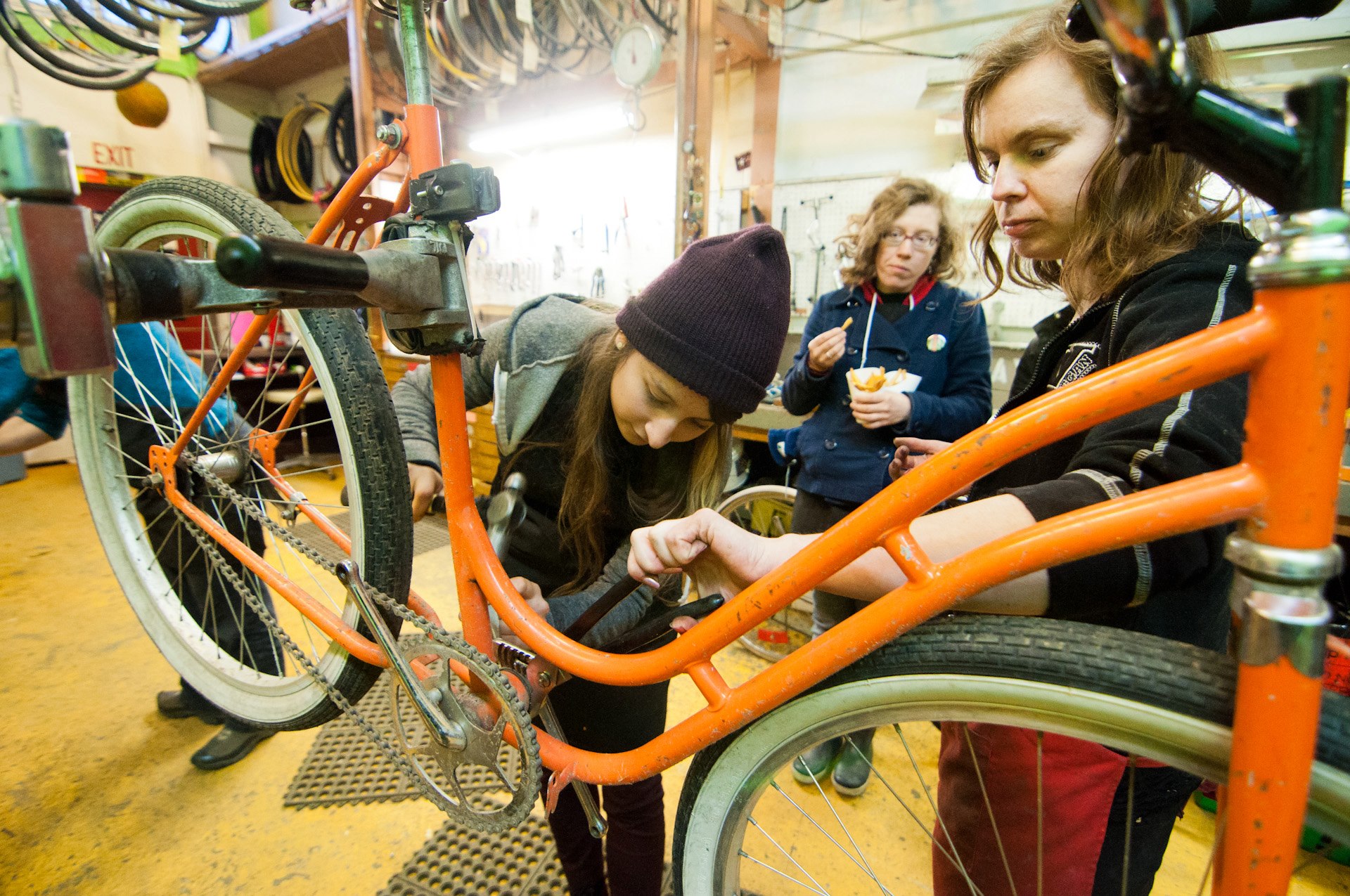If you can't answer, "What would it take to change your mind?", then your position is likely based more in ideology than reality.
Building a strong, sustainable, livable city isn't a matter of ideology: it's a matter of adopting practical strategies and evaluating results to incrementally improve quality of life.
Not all bike infrastructure is created equal. Nor should it be, as not all routes are the same: some roads need stronger protection or increased travel priority, some already-calm streets can benefit from simple signage and wayfinding. This all has to be balanced against the costs: building an 8-lane $4 billion bicycle ring road around Edmonton, for instance, would be silly.
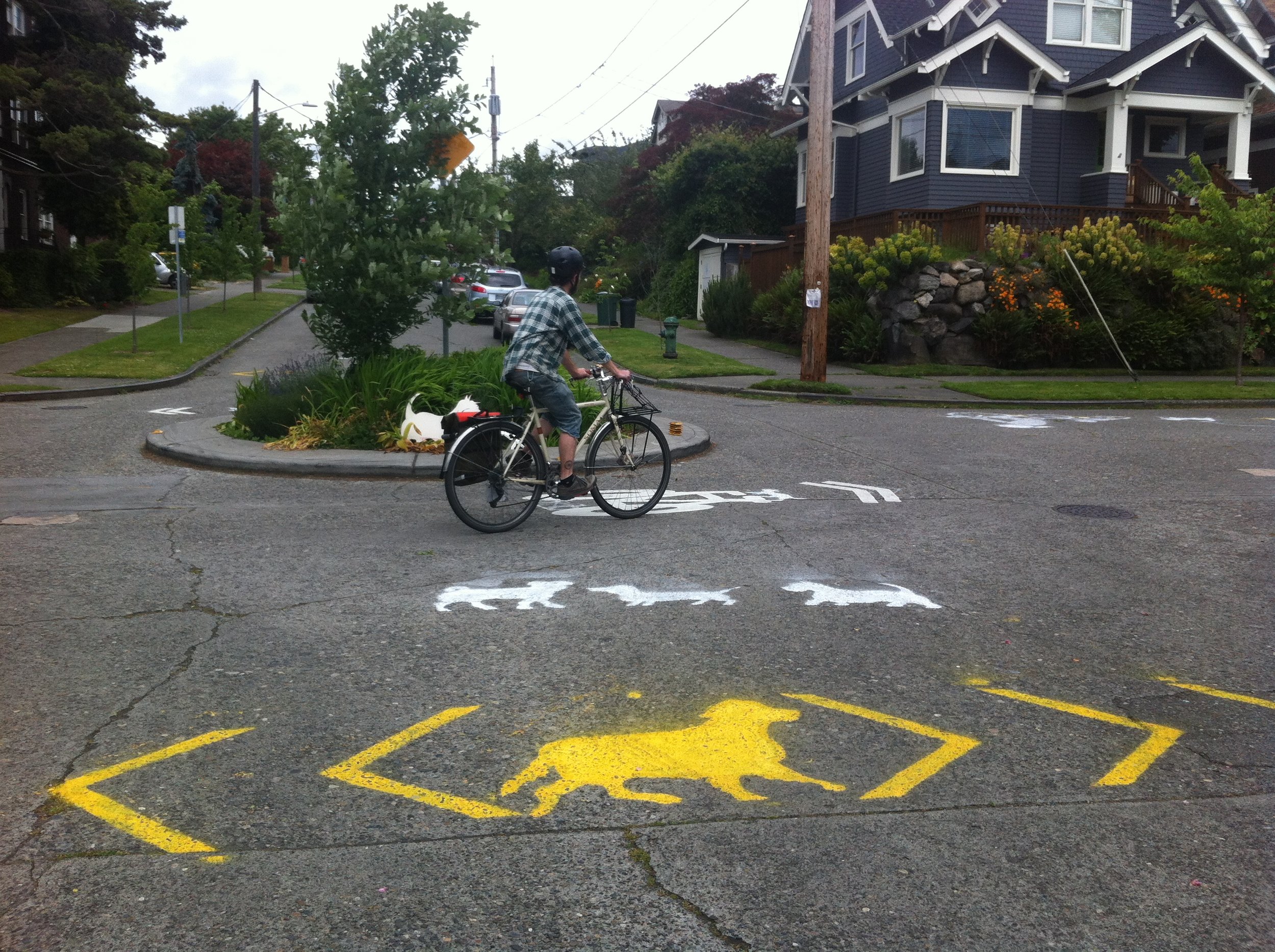 Well-planned bike infrastructure is far cheaper to build and maintain than road infrastructure of similar capacity. In fact, every time someone walks or rides a bike, they subsidize the infrastructure costs of driving while receiving less in return for their own tax dollars. At the same time, supporting walking, cycling, and transit use eases congestion, which makes life better for drivers.
Well-planned bike infrastructure is far cheaper to build and maintain than road infrastructure of similar capacity. In fact, every time someone walks or rides a bike, they subsidize the infrastructure costs of driving while receiving less in return for their own tax dollars. At the same time, supporting walking, cycling, and transit use eases congestion, which makes life better for drivers.
So what makes good infrastructure, what makes bad infrastructure, and what do we do if we conclude that something is bad?
Bad road infrastructure is dangerous. It is expensive for the amount of utility it promises to provide. It discourages people from being on the street. Bad infrastructure prevents people from enjoying the city they live in.
Good infrastructure is a bit harder to define and measure. It increases the amenity value of neighbourhoods. It reduces collisions. It promotes public health and reduces health-related costs (this is difficult to overstate: diabetes, high blood pressure, cancer, obesity, cardiovascular disease, among others, are all related to lack of physical activity. They also represent a large cost to the health care system). Good infrastructure promotes personal security by encouraging street-level activity, thereby reducing crime. It saves money through reducing capital and operating costs, as well as reducing congestion, parking demands, and reducing the need to pursue expensive road widening projects. Good infrastructure must also connect people within their communities and to the places they wish to go.
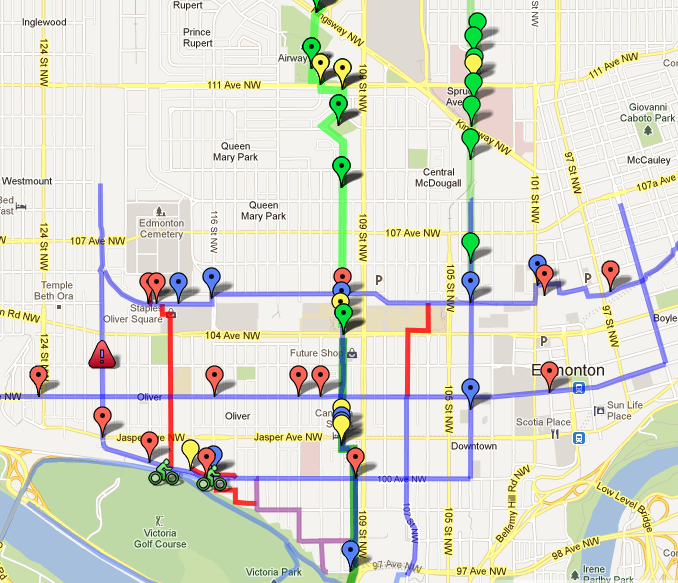 But measuring good infrastructure is not straight-forward. New developments in Edmonton have very good shared-use pathways, but they don't comprise a transportation network, so you can't measure their performance in that context. Most sections of Edmonton's on-road bike routes are at a similar stage: it's still too early to measure their performance as part of a network. Safety & public health, congestion impacts, usage: these metrics all have different long-term implications than short-term. Without disregarding present considerations, any city with a future needs to have the courage pursue its long-term vision.
But measuring good infrastructure is not straight-forward. New developments in Edmonton have very good shared-use pathways, but they don't comprise a transportation network, so you can't measure their performance in that context. Most sections of Edmonton's on-road bike routes are at a similar stage: it's still too early to measure their performance as part of a network. Safety & public health, congestion impacts, usage: these metrics all have different long-term implications than short-term. Without disregarding present considerations, any city with a future needs to have the courage pursue its long-term vision.
Back to the initial question: we know many of the answers to "why should we build bike lanes," but we must also be able to answer "what should it take for the City to decide to change or remove a bike lane that has already been constructed?"
- If it is more dangerous. If collision rates (for road users generally, including drivers, cyclists, and pedestrians) increase in a statistically significant way due to the bike lanes, then there is clearly a design flaw, irrespective of education. Good-design should naturally encourage safety.
- If it reduces the capacity of a roadway below the desired capacity of that roadway. Not all roads are created equal: for example, a residential collector road is meant to serve adjacent neighbourhoods, not to provide a convenient shortcut from an arterial. The City knows the population of neighbourhoods and can design streets to handle desired volumes and speeds. Given time, congestion issues tend to level themselves out: a high-speed high-volume collector road is a prime choice for drivers looking to shortcut. But if roads are redesigned to discourage shortcutting, then residents, who don't need to speed through their own neighbourhoods, will also benefit. If a road can't accommodate its intended use (and those uses can both change over time, as well as include pedestrian and bicycle travel), then a re-evaluation of bike infrastructure may be warranted. That said, none of the traffic jams in Edmonton are caused by too many bike lanes. They are caused by too many cars.
- If a more desirable alternative is available and viable. Deciding what's more desirable is simple for an individual and complicated for a group, but the best infrastructure provides options for a range of users while making efficient use of resources (i.e. tax dollars). While we'd love to see a city-wide grid network of multi-use trails with priority crossings, or protected cycle tracks, the monumental relative cost would mean we'd only be able to build 5km instead of 500km of bike routes. But if an alternative exists that provides a better quality service (not in the distant future, but already exists as a direct replacement), by all means, let it be used instead.
Reacting blindly to vocal opponents of change, whether that be for a massive project such as the LRT, or the small-but-visible Bicycle Transportation Plan, without first considering whether or not the data supports that reaction, would set a dangerous precedent. Neither should the City blindly listen to organizations such as EBC: they must consider the evidence.
Cycling infrastructure must find a balance, and work in the context of a city that has grown up around the personal automobile.
So too, though, must automobile infrastructure find a balance, and work in the context of a city that recognizes that its future lies in shifting that focus, and that an ideological devotion to high-speeds and more road space for cars only leads to the traffic congestion of car meccas like Los Angeles, Houston and Detroit.
Portland, OR, a city renowned for its cycling infrastructure, went through the same growing pains as Edmonton when it started building bike lanes in the 70s. New York City, too, more recently. Minneapolis, whose weather is very similar to Edmonton's (about the same temperature, but they get more snow and twice as much rain), after years of building out their transportation network of bike lanes, was named the #1 Bicycling City in the US. Even the Netherlands saw mass protests before the government renewed investment in cycling infrastructure.
Below is an image of a Los Angeles road (prior to shutting down for a road widening). Traffic congestion looks a lot different in Copenhagen.
Let Edmonton find its balance on the right side of the future.
